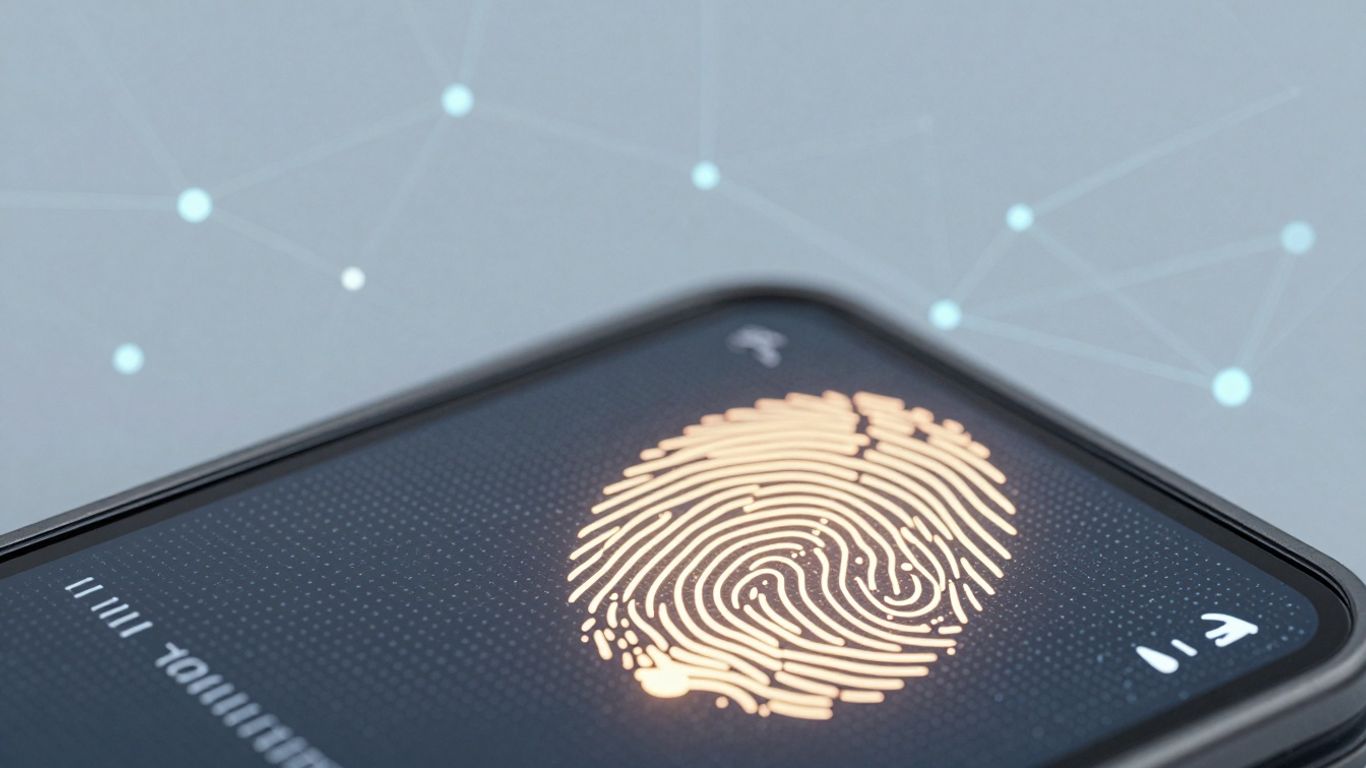[ newsletter ]
Stay ahead of Web3 threats—subscribe to our newsletter for the latest in blockchain security insights and updates.
Thank you! Your submission has been received!
Oops! Something went wrong. Please try again.
Discover how insurance on the blockchain is transforming risk management, claims processing, and industry transparency.





The insurance industry is undergoing a major shift thanks to blockchain technology. It’s changing how companies manage risk, process claims, and interact with customers. As we look ahead, the potential for blockchain in insurance seems limitless, promising a future that’s more efficient and transparent. Let’s explore how insurance on the blockchain is reshaping the industry.

Blockchain tech is changing how insurance companies handle risk. It's not just about cutting costs; it's about making the whole process smarter and more secure. Think about it: traditional insurance is often slow, full of paperwork, and prone to errors. Blockchain offers a way to fix many of these problems by creating a transparent and tamper-proof system.
Imagine being able to assess risk based on what's happening right now, not just on historical data. That's the promise of real-time data collection with blockchain. With the rise of IoT devices and connected sensors, insurers can get a constant stream of information about the assets they're insuring. This means more accurate risk assessments and the ability to adjust policies dynamically. For example, dynamic pricing models can adjust premiums based on current risk levels.
Dynamic risk assessment is a game-changer. Instead of relying on static models, insurers can use real-time data to constantly update their understanding of risk. This allows for more personalized policies and better risk management overall. It's like having a constantly updating weather forecast for your insurance policy.
Fraud is a huge problem for the insurance industry, costing billions every year. Blockchain can help by creating a transparent and immutable record of all transactions. This makes it much harder for fraudsters to get away with false claims. Plus, smart contracts can automate many of the checks and balances that are currently done manually, further reducing the risk of fraud. The blockchain's decentralized ledger simplifies and automates processes.
Blockchain's cryptographic features ensure secure data transmission and storage. In the insurance industry, this translates to a significant reduction in fraud. Through the use of smart contracts, which automatically execute and enforce the terms of an agreement, the potential for fraudulent activities is significantly minimized.
Smart contracts are changing how insurance claims get handled. It's all about making things faster, cheaper, and way more secure. Think about it: no more endless paperwork or waiting around for someone to approve your claim. Let's get into the details.
Imagine a world where your insurance claim gets approved automatically. That's the promise of blockchain and smart contracts. When certain conditions are met, the smart contract kicks in and processes the payment without any human intervention. For example, if you have weather-related coverage and there's a major storm, the system can automatically verify the damage and start the claims process. This is a big deal because it cuts down on processing times and reduces the chance of errors.
One of the biggest headaches with insurance is how long it takes to get paid out. With smart contracts, that could be a thing of the past. Instead of waiting weeks or months, you could get your money much faster. This is because the whole process is automated, from verifying the claim to issuing the payment. It's all about speed and efficiency.
Insurance fraud is a huge problem, costing companies and customers a lot of money. Blockchain can help with this by making it harder for people to file fake claims. Because all the data is stored on a decentralized ledger, it's much harder to tamper with. Plus, smart contracts can automatically verify information, making it easier to spot suspicious activity. Some companies have seen a 30% drop in fraudulent claims after implementing blockchain solutions. That's a win for everyone.
Smart contracts can trigger a payout when predefined conditions are met, like damage validated by satellite data. This automation speeds up legitimate claims and deters fraud.
Here's a quick look at how blockchain helps:
Insurance is often seen as a complex industry, but blockchain tech is changing that. It's making things more open and secure, which is good for everyone involved. Let's look at how.
One of the biggest things about blockchain is that it's decentralized. This means there's no single point of control, making it harder for someone to mess with the system. Think of it like a shared digital record book that everyone can see, but no one can secretly change. This blockchain technology approach really helps build trust.
With blockchain, once something is written down, it can't be changed. This is super important for insurance because it means records are reliable and trustworthy. No one can go back and alter a claim or policy to benefit themselves. This immutability creates a solid foundation for fair dealings.
This feature is a game-changer for preventing fraud and ensuring that everyone is playing by the same rules. It brings a new level of accountability to the insurance process.
Blockchain uses cryptography, which is basically super-advanced code, to keep everything safe. This means that data is encrypted, making it really hard for hackers to break in and steal information. It's like having a super strong lock on all your important documents. This is how [AI-powered tools] are kept safe.
Here's a simple table to illustrate the impact:
Blockchain is not just a buzzword; it's a real solution for making insurance more transparent and secure. It's about building trust and making sure everyone gets a fair deal. It also helps with insurance fraud.
Blockchain tech isn't just about cryptocurrency anymore; it's shaking up how insurance works. We're seeing some really interesting new models pop up, all thanks to the transparency and security that blockchain brings to the table. It's not just talk either; some of these models are already being used in the real world.
Parametric insurance is where blockchain really shines. Instead of traditional insurance that pays out based on assessed damages, parametric insurance pays out when a specific event happens. Think of it like this: a farmer buys insurance that pays out if rainfall is below a certain level. With blockchain, this can be automated using weather data. If the data shows the rainfall was low, the smart contract automatically releases the payment. No adjusters, no paperwork, just a quick, transparent payout. Parametric insurance is a great example of this, providing benefits not just for insurers but also for their clients.
AI is already changing how insurance companies assess risk, but when you combine it with blockchain, things get even more interesting. AI can analyze huge amounts of data to predict risk, and blockchain can make sure that data is secure and tamper-proof. This means more accurate risk assessments and more personalized policies.
Insurance companies are starting to use behavioral economics to encourage better behavior from their customers. For example, a car insurance company might offer discounts to drivers who consistently drive safely. Blockchain can be used to track and verify this data in a transparent and secure way. This creates a win-win situation: customers get rewarded for good behavior, and insurance companies reduce their risk.
The transformative potential of blockchain technology lies in its ability to streamline complex processes while maintaining high levels of security and transparency. By integrating blockchain into their operations, insurers can offer innovative solutions that meet the evolving needs of their customers in an increasingly digital world.
Blockchain tech sounds amazing for insurance, right? But getting there isn't always smooth sailing. There are definitely some bumps in the road that companies need to think about.
One of the biggest headaches is trying to fit blockchain into old, existing systems. Most insurance companies have been using the same software for years, and it's not always easy to make them talk to new blockchain platforms. It's like trying to plug a USB-C into a floppy disk drive – it just doesn't work without some serious adapters and workarounds. This can mean spending a lot of money and time on custom solutions, which isn't ideal. You need to assess current insurance processes and identify areas where blockchain can add value.
Regulations are another big hurdle. The rules around insurance are already complicated, and adding blockchain into the mix makes things even trickier. Regulators are still trying to figure out how to deal with this new technology, and there's a lot of uncertainty about what's allowed and what's not. This means insurance companies have to be extra careful to make sure they're following all the laws, which can be a real challenge.
It's like trying to build a house when the building codes keep changing. You have to constantly adjust your plans to stay in compliance, which can slow things down and increase costs.
Blockchain really works best when everyone's on board. If only a few insurance companies are using it, it's not going to be as effective as if the whole industry adopts it. That means companies need to work together to create standards and protocols for using blockchain in insurance. This can be tough because companies are often competitors, and they might not want to share information or work together. But if they can find a way to collaborate, it could really speed up the adoption of blockchain and make it more useful for everyone. Here are some companies that are collaborating:

I think we're going to see more and more insurance companies actually using blockchain. It's not just a cool idea anymore; it's becoming a real solution. As the benefits become clearer, like reduced fraud and faster claims, more insurers will jump on board. We might even see some smaller companies leading the way, showing the big guys how it's done. It's all about proving the tech works and getting past the initial hesitation.
Blockchain isn't standing still. It's mixing with other tech like AI and IoT to create some really interesting stuff. Imagine AI analyzing data from IoT devices to predict risks, and then blockchain automatically adjusting policies. It's like a super-smart, self-regulating insurance system. I'm excited to see how these technologies transform the insurance industry together.
Blockchain can make insurance way better for customers. Think about it: more transparency, faster payouts, and policies that actually fit your needs.
It's about giving people more control and making the whole process less of a headache. No one likes dealing with insurance, but blockchain has the potential to change that. It's about building trust and making sure customers feel like they're getting a fair deal.
Here's what I think we'll see:
Let's look at some real-world examples of how blockchain is being used in the insurance industry. These case studies show the potential of this technology to transform various aspects of insurance operations. These implementations highlight the tangible benefits and innovative approaches companies are taking.
Blockchain's ability to create immutable records and automate processes through smart contracts is revolutionizing how insurance companies operate. These examples demonstrate how blockchain can reduce fraud, increase efficiency, and improve customer satisfaction.
Implementing blockchain in insurance isn't always easy. Here are some key lessons learned from early adopters:
Blockchain has the potential to significantly improve the customer experience in insurance. Here's how:
In conclusion, the shift towards blockchain in the insurance world is pretty exciting. It's not just about fancy tech; it's about making things work better for everyone involved. With faster claims, less fraud, and clearer records, both insurers and customers stand to gain a lot. Sure, there are bumps in the road, like figuring out regulations and getting everyone on the same page. But as more companies jump on board, we can expect to see some real changes. The future of insurance looks brighter with blockchain, and it’s going to be interesting to see how it all unfolds.
Blockchain is a secure way of storing data that helps insurance companies keep track of information without needing a middleman. It makes processes faster and safer.
Blockchain uses smart contracts to automatically handle claims. This means claims can be approved quickly, reducing the time people wait for their money.
Smart contracts are like digital agreements that automatically execute when conditions are met. For example, if a specific event happens, the payment is made automatically.
Blockchain keeps a permanent record of all transactions, which makes it very hard to change or fake information. This helps reduce fraud.
Blockchain allows for new types of insurance, like parametric insurance, which pays out automatically based on certain conditions, like weather events.
Insurance companies need to connect blockchain with their old systems, follow regulations, and work together with other companies to make it work.


